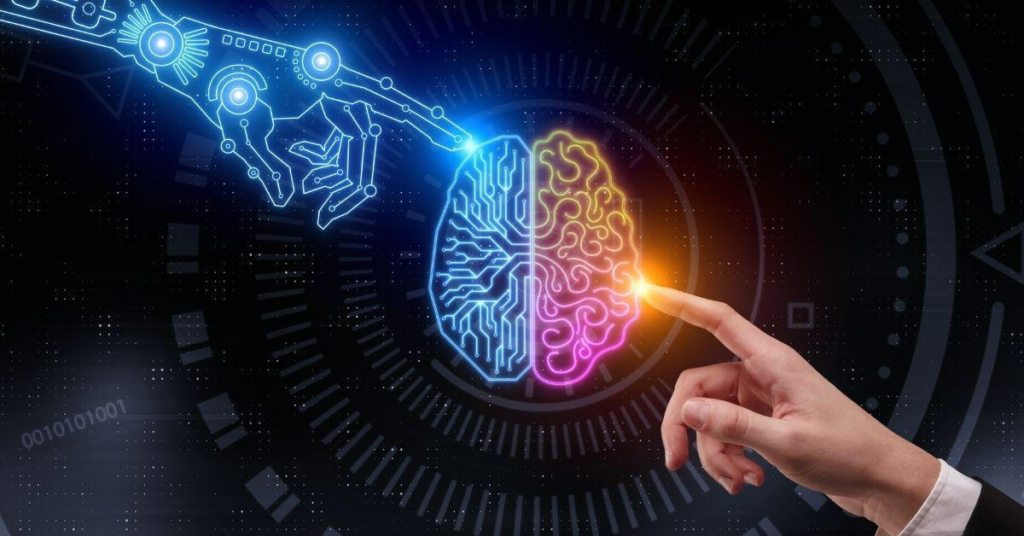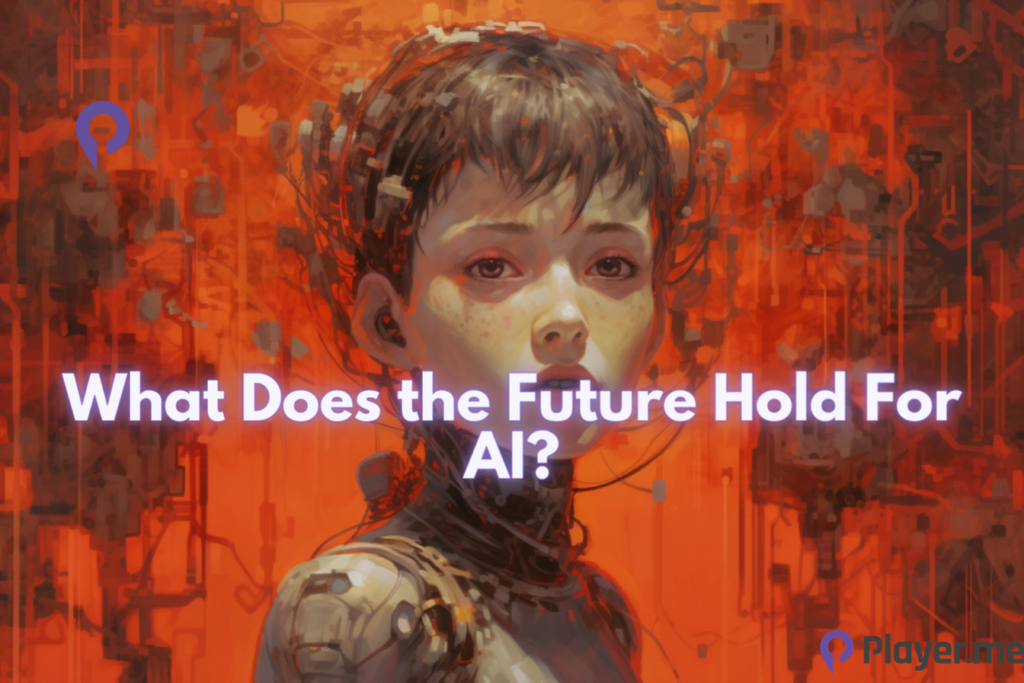The idea of robots and thinking machines isn’t a novel concept. For several decades, science fiction writers and scientists have toyed and dabbled with the idea of machines designed to solve mundane tasks and even think the way humans do.
Now that AI (Artificial Intelligence) is a reality, the speculations still haven’t gone away. In fact, the debates have doubled and increased in intensity. It’s unknown how far advances in AI technology will take humanity, and even the innovators themselves are unsure about AI’s growth trajectory in the coming years.
Also read : Top 7 AI Chatbots at the Moment

What Is AI?
AI (Artificial Intelligence) is a technology that simulates human cognitive reasoning.
Machines and software built with AI technology are designed to carry out certain cognitive capabilities unique to the human brain, such as analytical and deductive reasoning.
At its heart is the processing of vast amounts of human data to draw practicable inferences. AI is designed not only to analyse and solve problems and learn to make better analyses for efficient problem-solving.
How Does AI Work?
Today, the AI race is truly on among the big tech corporations in the world. The likes of Amazon, Microsoft, Apple, Meta and Google are rapidly innovating AI-based solutions for e-commerce, media streaming, e-learning and other digital services.
Their innovations are driven by cutting-edge techniques in AI systems as they work to improve the technology’s efficiency, functionality and scope.
AI solutions and systems function by processing and analysing big data for patterns and correlations, which will subsequently be used to make predictions.
Chatbots like ChatGPT fed with large amounts of text can learn to generate impressively accurate strings of high-quality text when prompted. In the same way, AI image generators can come up with high-quality images, and smart home devices can self-regulate to keep internal temperatures stable.
AI systems can thus learn by acquiring data and creating rules or algorithms for converting to actionable information. Also, the systems can reason and self-correct the algorithms and ultimately become creative, using various neural networks and statistical methods to self-improve.

AI and the Future
Today, the rave is about OpenAI’s language-based model, ChatGPT, which is gaining traction across several quarters.
The innovation has been praised for its human-like responses, vast knowledge and ability to solve complex problems in a matter of seconds.
On the other hand, AI-based virtual assistants for mobile phones and state-of-the-art smart cars continue to improve, learn and get smarter.
However, it’s clear that there are many issues with the use of the technology, debates that will rage well into the future.
AI and Jobs
The pressing concern for the future is how AI technologies will impact human jobs.
AI assistants and chatbots can already do much of what many human writers, creatives, researchers and academics can do. There’s much uncertainty regarding this, particularly given that AI technologies will only improve in the future.
One thing is certain, though certain job roles will be rendered obsolete. What is uncertain is to what extent.
AI and Ethics
Already, there are grave concerns about AI and its ability to distinguish and maintain ethical standards.
For instance, many chatbots cannot directly be prompted to generate hate, discriminatory, and incendiary speech. However, they can still be cleverly manipulated into doing so.
Besides, the full range of functionality of many AI-based models is still unknown, even by their creators.
Another issue in AI ethics that could become more worrying as the technology evolves is the malicious use of algorithms. Although many bad actors can train an AI to carry out malicious activity, part of the threat comes from legitimate companies using AI algorithms that inadvertently generate corrupt or unethical output.
In conclusion, reducing AI-associated risks will be an ongoing topic for the future, even as algorithms are designed to be more transparent, diverse and less biassed.

Frequently Asked Questions
What Is AI?
AI stands for Artificial Intelligence and refers to all technologies designed with the capacity for simulating sentient or cognitive reasoning.
Can AI Think?
Yes, AI systems are designed to digest and process data and draw intelligent inferences and self-learn to make even more accurate predictions over time.
Will AI Take Over Jobs in the Future?
There are signs to indicate that AI will render many jobs obsolete in future. However, it is difficult to deduce the extent to which this will occur.





